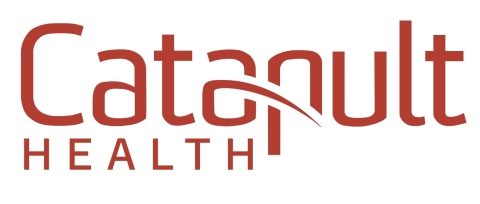Catapult Health Study Reveals New Insights About Depression and Suicidal Ideation in the American Workplace
Catapult Health Study Reveals New Insights About Depression and Suicidal Ideation in the American Workplace
One of the largest clinical analyses ever conducted uncovers insights on the state of the American workforce’s psychological health
DALLAS--(BUSINESS WIRE)--Catapult Health, a national preventive care medical provider, today released a longitudinal study that correlates depression and suicidal ideation among American workers with age, biological sex, race and ethnicity, chronic disease, and various health behaviors. The study, "A Data-Driven Look at Workplace Depression, Plus Practical Tips for Helping Your Employees,” is one of the largest analyses ever conducted of depression in the workplace, looking at de-identified clinical data from more than 425,000 patients across 400 employers using validated depression and suicide screening methods.
“There’s no doubt that the American workforce has faced a wave of mental health challenges over the past year, but what we’ve learned is that COVID-19 wasn’t the spark – only that it forced many to confront a nationwide crisis already underway,” said David Michel, Chairman and CEO of Catapult Health. “We found that rates of depression have increased in all segments of the population since 2018, especially among the least healthy and most overweight.”
Key findings in Catapult’s study include:
- Employees experiencing depression needed emergency care at a rate 28 times greater than those who were not depressed.
- Younger employees were most likely to consider suicide, accounting for 32 percent of those with suicidal thoughts but only 12 percent of the study population.
- Those who identified their biological sex as “other” indicated suicidal ideation at a rate almost five times higher than the rest of the population.
- Millennials are experiencing depression at a rate 250 percent higher than their Baby Boomer counterparts.
- Females are experiencing depression at a rate 130 percent higher than their male colleagues.
- Those who identified as Hispanic or Latino had depression at a rate that was 52 percent higher than those who did not identify as such.
The study also provides a roadmap for employers to take action and implement new internal policies that, based on the data, create a strategic approach to help improve comprehensive employee health. This includes communicating frequently and consistently about the importance of physical and mental health, acknowledging COVID-19’s lasting impact, rethinking manager training to include recognizing the signs of depression and suicidal ideation, and balancing internal policies with external resources.
“As companies prepare to welcome employees back to both physical spaces and hybrid environments, it’s more important than ever that leaders harness this moment to address the behavioral health conditions like depression that have long been present by supporting the health and wellbeing of our workforces,” continued Michel.
“Employers have a unique opportunity to prioritize health and wellbeing as many industries welcome employees back to physical spaces or entirely rethink ways of working,” said Lee Dukes, Vice President of Clinical Outcomes at Catapult Health. “By building a foundation for employee wellbeing now, employers can help ensure a long-term solution that truly supports employee needs, both inside and out of the office.”
For more information on Catapult Health’s analyses into depression across the American workforce, read the full study here.
About the Study
Data included in this report were drawn from records of 427,118 adults who were screened for depression between July 2017 and mid-March 2021. The patients represented all 50 states and the District of Columbia. Results in this report are from de-identified findings for checkups conducted for 413 different employers. Most industry segments are represented, including banks, utilities, hospitals, engineering firms, religious organizations, state governments, colleges and universities, primary and secondary schools, county and municipal governments, law enforcement, health insurers, retailers, manufacturers, casinos, chemical plants, farming, and food service.
About Catapult Health
Catapult Health is a national preventive care medical provider operating in all 50 states. Catapult works with more than 400 employers serving 2 million employee and dependent lives. The company’s VirtualCheckup provides employees with annual wellness checkups including diagnostic screenings available onsite, at Quest locations or via a provided home kit. Learn more at www.catapulthealth.com or follow us on LinkedIn.
Contacts
Brittany Eagar
Catapulthealth@pancomm.com
